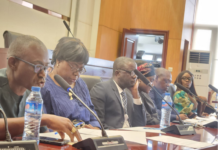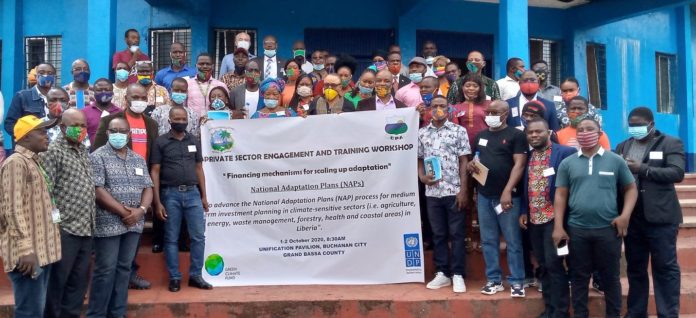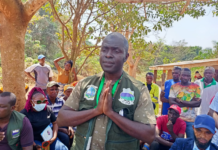By Calvin Quays| LPR News, Buchanan
The Environmental Protection Agency of Liberia (EPA) and the United Nations Development Program (UNDP) has ended a two-day private sector engagement and training workshop in Buchanan, Grand Bassa County for businesses operating in Liberia in response to improving climate change adaptation.
The 2030 Agenda for Sustainable Development and the Sustainable Development Goals; the Paris Agreement, and the Addis Ababa Action Agenda of the Third International Conference on Financing for Development and other multilateral frameworks under environmental agreements on biodiversity, chemicals and waste and ozone-depleting substances recognize and call for a strengthened relationship with the private sector.
The various multilateral environmental agreements also support the need for adoption of more innovative approaches to promote private sector sustainability, transformation and the leveraging of private-sector technical expertise and financial resources.
To achieve these objectives, there is a need for active private sector engagement, training and orientation on climate change adaptation (CCA), financing, and available financial instruments to de-risk their investments.
It is based on this that the EPA and the UNDP are engaging small and medium enterprises, large enterprises and multi-national companies, capitol providers and market facilitators at a two-day training workshop in Buchanan, Grand Bassa County to educate them and as well learn from the private sector on how to identify and manage risks from climate variability and climate change.
Speaking at the start of the training, which also Professor Benjamin S. Karmorh, focal point for Multilateral Environmental Agreement (MEA) at the EPA said climate change is a global issues and that the Government of Liberia through the EPA don’t want to leave anyone behind in the development of the country’s climate change plan.
The training seeks to assist the country find ways to supplement the international funding received with new forms of finance, including those from the private and public sectors.
He disclosed that the government is developing the country’s climate change plan for medium and long term intervention through the National Adaptation Plan (NAP) Project.
“And we don’t intend to leave anyone behind in the development process of Liberia’s climate change plan this is why we have called you to explain to you what we have been able to do in the NAP and how you can be included in this NAP process,” Professor Karmorh told the audience.
He explained that the private sector has a role to play in the achievement of pillar one of the Pro-Poor Agenda for Prosperity and Development and pillar two which talks about job creation.
“Government alone cannot employ everyone, the role of the private sector is important to assist government address the issue of unemployment,” the climate change expert said.
Speaking on the issues of governance and transparency, Professor Karmorh added “this is where the government intends to create an enabling investment climate. This is why the National Investment Commission is here to tell us what the opportunities available to businesspeople are.”
He dismissed claims that the EPA is anti-development and explained that we want to work with you to protect your investment. We want to promote economic development but we don’t want to at the same time compromise the environment.”
Also speaking, Liberia National Adaptation Plan Project (NAP) Program Manager,
Abraham T. Tumbey said Liberia remains vulnerable to climate change and a range of hazards, such as floods, sea erosion and windstorms leading to protracted livelihood losses and posing treat to economic development, including private businesses.
According to him, this continues as a challenge by undermining the country’s efforts to deliver on commitments to important initiatives such as the Sustainable Development Goals.
He disclosed that the latest climate change predictions for Liberia points to more rapid increases in temperature across some of the most productive regions of the country and predictions of more frequent and severe extreme weather events, there is an urgent need to engage the private sector in efforts to improve adaptation to climate change.
Tumbey noted that climate change is already disproportionately impacting the economically disadvantaged and slowing development, while posing huge risks to businesses and said it is important for the private sector to engage in adapting to climate risks “because financial impacts related to floods, storms, coastal erosion, and other weather-related disasters have risen steadily due to climate change.”
He stressed that the degree to which private sector will engage depends on numerous factors including the level of awareness on the impacts of climate change and the risk to businesses, economic incentives as well as opportunities for their engagement.
Tumbey spoke on behalf of UNDP Deputy Resident Representative for Program, Madam Violet Baffour.
























